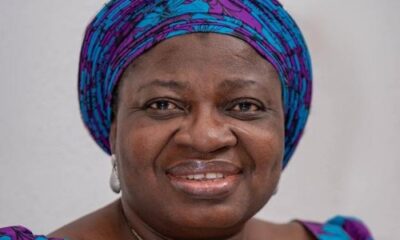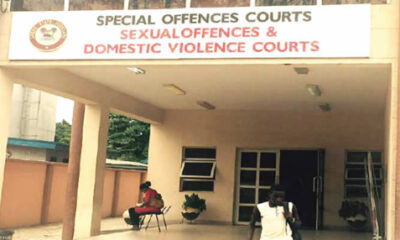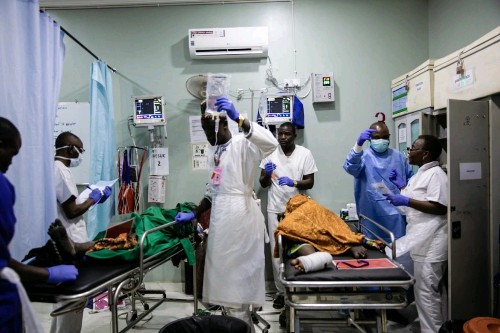The United Kingdom has placed Nigeria on the list of countries that should not be actively targeted for recruitment by health and social care employers.
The UK made the adjustment in its updated ‘Code of Practice’ for the international recruitment of health and social care personnel.
The red list, where Nigeria now falls, is drawn from the World Health Organisation (WHO) health workforce support and safeguards list.
In March, the WHO published the safeguards list comprising 55 countries, including Nigeria, struggling with a shortage of health workers.
The UK government said Nigeria and other countries on the red list should be prioritised for health personnel development and health system-related support as well as provided with safeguards that discourage active international recruitment of their workers.
“Countries on the list should not be actively targeted for recruitment by health and social care employers, recruitment organisations, agencies, collaborations, or contracting bodies unless there is a government-to-government agreement in place to allow managed recruitment undertaken strictly in compliance with the terms of that agreement,” the code of practice reads.
The UK, however, said the list does not prevent individual health and social care personnel in the red list countries from “independently” applying for employment in the country — “without being targeted by a recruitment agency or employer”.
The code of practice also states that “ethical recruitment is determined by the country from which the individual is resident in, rather than the nationality of the individual or their original country of training”. This means that if a health worker is a national of a red list country but does not reside there or in another red list country, the restrictions do not apply.
The UK also said if a government-to-government agreement is put in place between a partner country, which restricts recruiting organisations to the terms of the agreement, the country can be added to the amber list.
Kenya and Nepal are countries on the amber list.
Countries that are not on either the red or amber lists are to be considered ‘green’ countries and active recruitment is permitted where there is a government-to-government agreement with the UK in place.
Read Details below;
“Consistent with the WHO Global Code of Practice principles and articles, and as explicitly called for by the WHO Global Code of Practice 10-year review, the listed countries should be prioritised for health personnel development and health system-related support, provided with safeguards that discourage active international recruitment of health personnel.
“Countries on the list should not be actively targeted for recruitment by health and social care employers, recruitment organisations, agencies, collaborations, or contracting bodies unless there is a government-to-government agreement in place to allow managed recruitment undertaken strictly in compliance with the terms of that agreement.
“Countries on the WHO Health Workforce Support and Safeguards list are graded red in the code. If a government-to-government agreement is put in place between a partner country, which restricts recruiting organisations to the terms of the agreement, the country is added to the amber list.”
The amber countries where international recruitment is only permitted in compliance with the terms of the government-to-government agreement are Kenya and Nepal.
It added that active recruitment is permitted from green-graded countries where there is a government-to-government agreement with the UK in place for international health and care workforce recruitment.
“Green-graded countries without a government-to-government agreement with the UK are not published in the code of practice for England.
“The government-to-government agreement may set parameters, implemented by the country of origin, for how UK employers, contracting bodies, recruitment organisations, agencies, and collaborations recruit. These organisations are encouraged to recruit on the terms of the government-to-government agreement.
“The green country list will be updated as new government-to-government agreements are signed with the UK. It is recommended employers, contracting bodies, recruitment organisations, agencies, and collaborations regularly check the list for updates prior to embarking on any recruitment campaign.
“Green-graded countries with a government-to-government agreement for managing international health and care workforce recruitment are India, Malaysia, Philippines, and Sri Lanka,” it added.

 BIG STORY5 days ago
BIG STORY5 days ago
 BIG STORY2 days ago
BIG STORY2 days ago
 BIG STORY5 days ago
BIG STORY5 days ago
 BIG STORY16 hours ago
BIG STORY16 hours ago
 BIG STORY5 days ago
BIG STORY5 days ago
 BIG STORY4 days ago
BIG STORY4 days ago
 BIG STORY4 days ago
BIG STORY4 days ago
 BIG STORY2 days ago
BIG STORY2 days ago






















